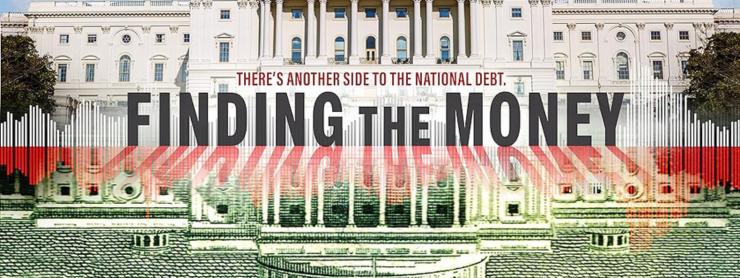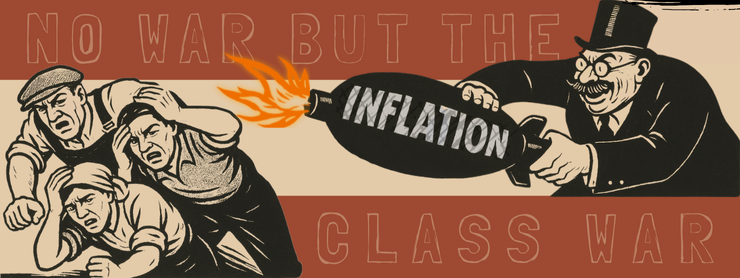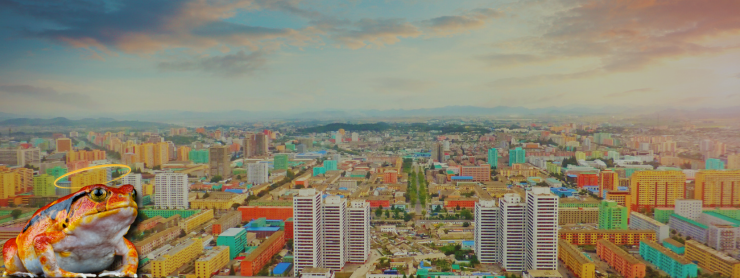When poor countries fall prey to inflation, it’s not because they’re “too socialist.”
The rising popularity of modern monetary theory (MMT) has inevitably brought misconceptions. Critics across the political spectrum often claim that MMTers want sovereign governments to “just print money” with no concern for the national debt or, as Max B. Sawicky suggests, inflation. Some, especially on the Right, point to Venezuela and Zimbabwe as classic cases of hyperinflation.
But MMT points to a different primary cause of inflation in developing countries: not domestic spending, but foreign debt and a resulting lack of “monetary sovereignty.”
A country has full monetary sovereignty when it has its own national currency that is not fixed to the value of gold or another nation’s currency; it uses that currency to impose taxes, fees and fines; and all its debt is payable in that currency. Countries that meet these criteria, like the United States and Japan, face no external constraints on government spending, as Pavlina R. Tcherneva explains. The risk of inflation remains under control so long as government spending does not outpace the economy’s real productive capacity — the availability of physical resources, skilled labor, equipment and technical know-how.
Developing countries’ trade deficits are the product of fundamental economic shortcomings, themselves often a legacy of colonial rule.
For developing countries, the problem begins with trade deficits and resulting debt owed in foreign currencies.
Those deficits are the product of fundamental economic shortcomings, themselves often a legacy of colonial rule. Postcolonial countries are typically unable to produce enough food and energy to meet domestic need, and they face structural industrial and technological deficiencies. Because of this, they must import food and energy, along with essential manufacturing inputs. For example, Venezuela lacks refining capacity, so — while it exports crude oil — it must import more expensive refined oil, contributing to trade deficits.
Importing more than they export causes these countries’ currencies to depreciate relative to major currencies. With a weaker currency, new imports (like food, fuel and medicine) become relatively more expensive. This imbalance is the real driver of inflation, and often of social and political unrest.
The International Monetary Fund (IMF) historically steps in at this point with emergency loans coupled with painful austerity measures. To get out of IMF conditions, even progressive policymakers typically prioritize acquiring foreign currency reserves in order to honor external debt payments. They promote tourism (tourists bring foreign currency) and design agricultural and manufacturing policies to support export industries. Meanwhile, industries that would build self-sufficiency (and thus fix the trade imbalance), like food crops for domestic consumption, receive little government support. All of this decreases self-sufficiency and reinforces the dependence on foreign goods that caused the debt in the first place.
Most developing countries looking for foreign currency also open their economies to investment from foreign corporations, agreeing to low environmental standards, weak labor regulations and tax exemptions, going deeper in the hole.
So what would an MMT-informed solution look like to help developing countries regain monetary policy and their ability to spend on domestic priorities? The goal is to reduce imports, secure a favorable trade balance and pay off their debts, so countries would focus on the root causes of trade deficits: invest in sustainable agricultural practices (like aquaponics) to restore food sovereignty; build renewable energy (like solar) to secure energy sovereignty; and invest in education and research and development to increase productivity and gain the ability to manufacture more valuable products. Such development would also increase the real productive capacity of the economy, meaning that governments would have more room to spend before inflation.
By illuminating the origins of postcolonial economic struggles, MMT shows us how to overcome them.
Republished from In These Times website. Read the original January 7, 2019 article here.





